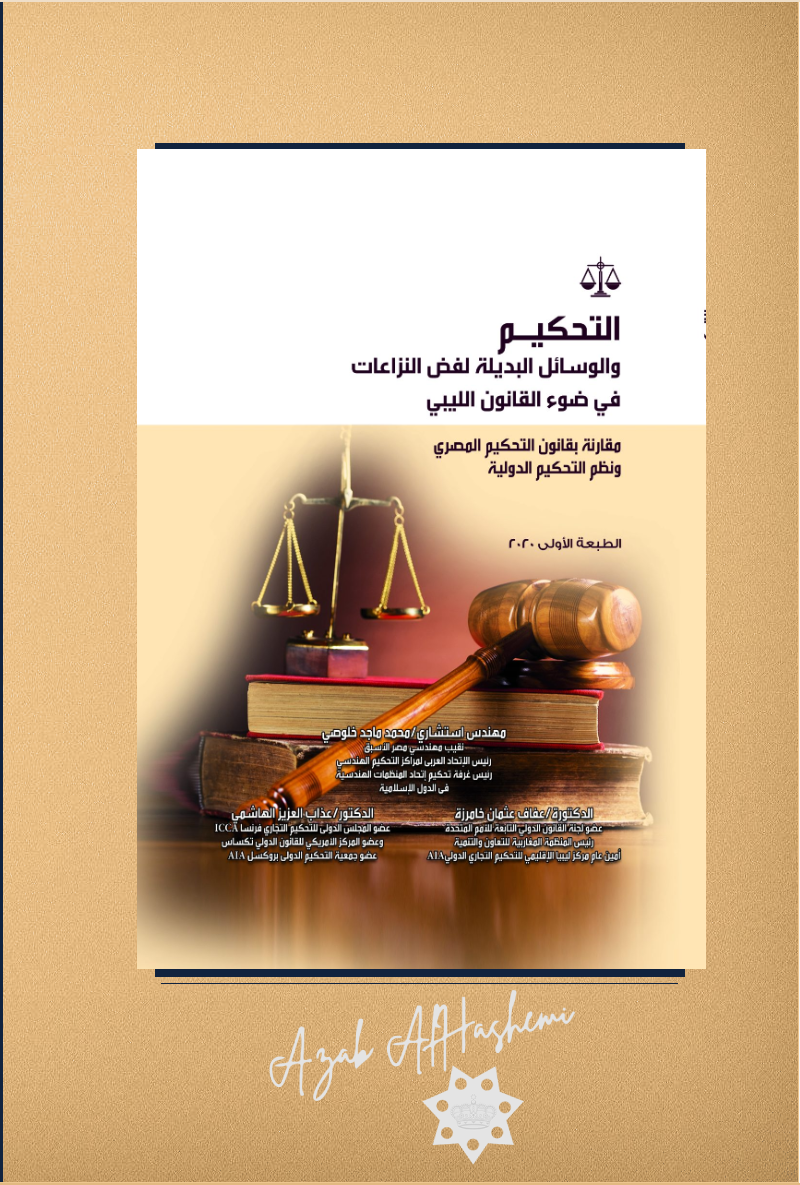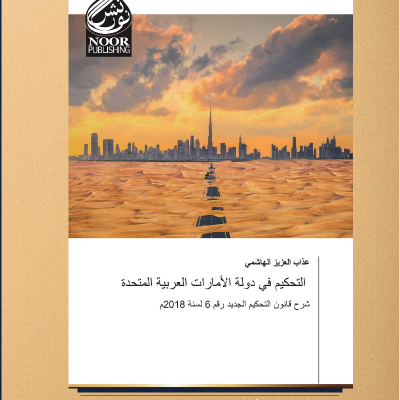Description
Product details
- Publisher : Universities Publishing House ( March 12, 2019)
- Language : Arabic
- Paperback : 223 pages
- ISBN : 978/977/90/6517/5 National Books and Documents House
- Item Weight : 1.26 pounds
- Dimensions : 8.27 x 0.35 x 11.69 inches
- By : Dr.Azab Alaziz Alhashemi
- Dr.Mohamed Majed Kolosi
- Dr.Afaf Othman Khamarzeh
Arbitration is no longer – as was rightly said – a commodity whose virtues must be preserved as much as it has become a system imposed by the reality of both domestic and international trade, especially since arbitration is as old as humanity and as a manifestation of justice precedes existence from the justice of the state, as it is the first path of justice for man imposed by nature since antiquity and before the establishment of the state, but after the emergence of the state and the development of judicial systems in it, the judiciary became the one with general jurisdiction in the consideration of all disputes, and arbitration became an exceptional way to resolve them, but due to its increasing importance day after day as a result of the increase in commercial exchanges and the development of economic activities, arbitration has become the best way to reduce Disadvantages of resorting to the judiciary to settle disputes. Indeed, arbitration has become a competitor to it in the speed of adjudication of internal economic and commercial disputes in general, and in disputes related to international trade contracts in particular.
Despite the increasing importance of arbitration due to the previous considerations, this does not mean at all that it is independent of the judiciary or that it is not subject to it. Rather, the matter lies in the extent of arbitration’s independence and subordination to the judiciary and the extent of its need for its assistance and assistance to reach its goal.
Cooperation between the judiciary and arbitration has become an inevitable and indispensable necessity, because what may be achieved through the assistance provided by the judiciary to arbitration, whether at the request of one of the litigants or the request of the arbitral tribunal, this assistance is not limited to the stage of issuance of the arbitral award and the stage of its implementation, but extends to include assistance upon agreement. The arbitrator shall solve the problems that may hinder the progress of its procedures to overcome the obstacles that may be encountered in the arbitration procedures and fill the deficit resulting from the fact that a claimant is an ordinary person who lacks the authority of the matter.
And since arbitration in Libya takes place by Articles (739) to Article (77) of the Libyan Procedures Law, this law derived many of its clauses from the old Egyptian Procedures Law, which was previously issued in 1949 AD.
In addition to the tremendous development that occurred from this date until today, most Arab countries have issued a law on arbitration, initiated by Egypt with Law No. 27 of 1994 AD, and followed by other Arab countries, the latest of which was the UAE Arbitration Law No. 6 of 2018 AD, so all of this came as a motive for issuing this book and appealing to the government To find a law for arbitration in Libya to be in line with the tremendous development that took place in the world, with its avoidance of the problems revealed by the actual practice of arbitration cases by other Arab arbitration laws. Therefore, this book contains a proposed draft law for arbitration in Libya.





Reviews
There are no reviews yet.